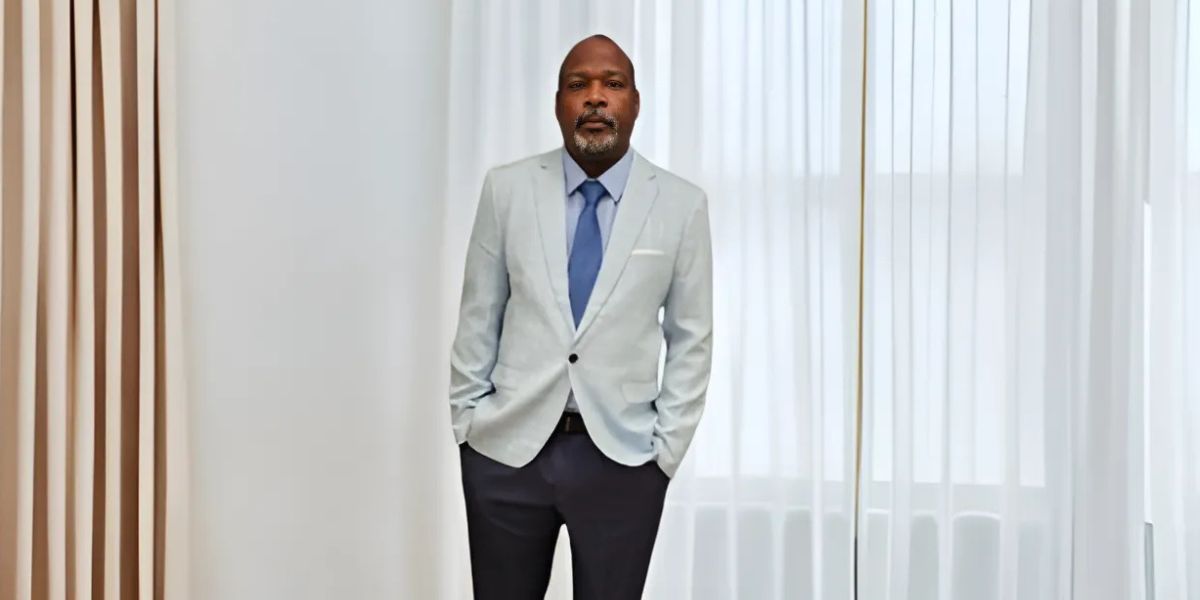By: Bruce N. Boyd
When the world feels unfair, stories about people who endure and remain strong can be deeply meaningful. One such story is found in Valentine Harris’s latest novel, The Black Godmother.
The journey of Naomi Davis, the protagonist, unfolds as a compelling narrative of transformation—from a vulnerable girl to the widely feared and respected leader of the 8th & L Street Crew.
This evolution is not merely a personal journey but also reflects the difficult realities faced by marginalized communities. Through Naomi’s dual role as both protector and destroyer, Harris explores the complexity of power and the sacrifices it often requires.
A World Shaped by Struggles
The Black Godmother begins in the ghettos of America, a setting affected by poverty, violence, and systemic neglect. Naomi is introduced as a young girl trapped in a cycle of hardship, where survival frequently involves making difficult choices.
The crack epidemic of the 1980s looms large, devastating Black communities and exacerbating systemic inequities that shape Naomi’s world. Harris’s narrative presents a stark picture of a society offering limited opportunities to break free from poverty.
Naomi’s early life is marked by loss and struggle. Raised by her grandmother, Ruth, after the violent death of her parents, she learns resilience and resourcefulness. Ruth’s teachings instill a sense of strength in Naomi, but the systemic barriers around her often leave her feeling powerless. Her journey reflects the harsh reality that, for many, the streets are both a source of danger and a means of survival.
The Rise of the Black Godmother
Naomi’s transformation into the Black Godmother is both a story of strength and a cautionary tale. As she rises to power within the 8th & L Street Crew, she becomes a figure of authority and protection in her community.
For those around her, Naomi’s leadership provides a degree of protection and stability in a chaotic environment. Her crew respects her not only for her intelligence and determination but also for her ability to navigate the complexities of the drug trade with care and strategy.
However, Naomi’s ascent comes with challenges. Her position as a leader requires difficult decisions, often involving violence and betrayal. While she becomes a source of protection for her crew and her son, Darius, she also contributes to the cycle of destruction that affects her community.
Harris portrays this duality, showing how Naomi’s role as a protector is closely intertwined with her actions as a destroyer.
The Personal Cost of Power
The power Naomi holds is both empowering and isolating. In her efforts to protect those she loves, she sacrifices personal relationships and faces moral dilemmas. Her bond with her grandmother, once a source of guidance, becomes strained as Naomi’s choices diverge from the values Ruth tries to instill. Her son, Darius, represents her hope for a different future, but her lifestyle puts their relationship under strain.
Valentine Harris uses Naomi’s story to explore the emotional toll of leadership and the moral complexities it involves. Naomi’s journey highlights the internal conflict of wanting to shield her community while also being part of its struggles. This duality makes her a nuanced and tragic figure, whose actions are driven by love and desperation but sometimes lead to unintended harm.
A Reflection of Systemic Injustice
The Black Godmother is not only Naomi’s story; it also critiques systemic issues that create and perpetuate cycles of poverty and crime. Harris draws attention to the lack of support and resources in marginalized communities, from underfunded schools to over-policed neighborhoods. Naomi’s rise to power is not solely a result of ambition but also a consequence of a system that offers limited alternatives.
Through Naomi’s experiences, Harris invites readers to reflect on broader societal structures that influence individual lives. The book encourages consideration of how systemic neglect and exploitation can push individuals into roles they might not otherwise choose. It is a sobering reminder that survival often comes with significant costs.
Legacy and Redemption
Despite the hardships in Naomi’s journey, The Black Godmother offers moments of hope and the possibility of redemption. Naomi’s love for her son motivates her to seek a better future for him, even as she contends with the weight of her actions. Her story underscores the resilience of the human spirit and the enduring desire for change.
Valentine Harris’s novel provides an insightful exploration of power, survival, and legacy. Through Naomi’s complex role as protector and destroyer, Harris captures the challenges faced by individuals in marginalized communities and the difficult choices necessary for survival.
Readers interested in stories that provoke thought and spark conversations about resilience and social issues will find The Black Godmother a meaningful read.
The Black Godmother
By Valentine Emmanuel Harris
valentine harris vk2k31@yahoo.com
Disclaimer: This article is for informational purposes only and does not constitute professional advice. The views expressed are based on publicly available information and the content of the novel The Black Godmother. Any opinions or interpretations are those of the author and do not imply endorsement by the publisher or related parties. Readers should independently verify information and form their own opinions.


















